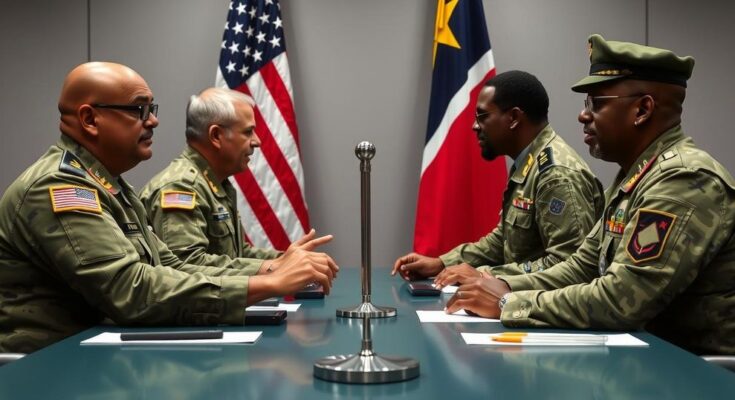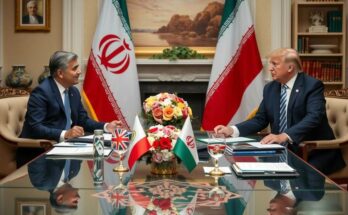The U.S. and Trinidad and Tobago have renewed military agreements, including a SOFA amendment that enhances military cooperation. While U.S. officials claim these agreements strengthen defense ties, local press reports suggest they may enable troop deployments in Venezuela’s context. Prime Minister Rowley denies any such plans, reinforcing Trinidad’s commitment to peace in the region.
On December 10, 2024, Trinidad and Tobago and the United States formally renewed several military cooperation agreements, including the amendment of a Status of Forces Agreement (SOFA). This renewed SOFA is designed to enhance interoperability between the military forces of the two nations. The agreements were announced by the U.S. embassy in Trinidad, emphasizing that they will create unprecedented opportunities for defense partnership, as stated by U.S. Ambassador Candace Bond. The extended agreements, which include the Caribbean Basin Security Initiative Technical Assistance Field Team and an Acquisition and Cross-Servicing Agreement, may allow U.S. troops to be deployed in Trinidad under specific circumstances, sparking local controversy.
The renewed military agreements between Trinidad and Tobago and the United States signify deeper defense cooperation amidst rising tensions in the region, particularly concerning the situation in Venezuela. The SOFA renewal will permit U.S. military personnel to operate within Trinidad under certain conditions, which has raised concerns regarding potential troop deployments related to Venezuelan conflicts. Trinidad and Tobago’s Prime Minister Keith Rowley has vehemently denied any plans for U.S. troop deployment, underscoring his government’s commitment to regional peace and stability. This follows the backdrop of Trinidad’s recent energy deals with Venezuela, further complicating its diplomatic balancing act between Washington and Caracas.
The renewal of military agreements between Trinidad and Tobago and the United States highlights heightened defense collaboration while simultaneously raising questions regarding the potential for U.S. military presence in the Caribbean. Prime Minister Rowley’s emphatic denial of any troop deployment signals Trinidad’s intention to maintain its sovereignty and avoid being mired in regional conflicts. The situation remains fluid as the nation’s government seeks to navigate its diplomatic relations with both the U.S. and Venezuela, particularly as energy explorations continue in cooperation with multinational corporations.
Original Source: venezuelanalysis.com




